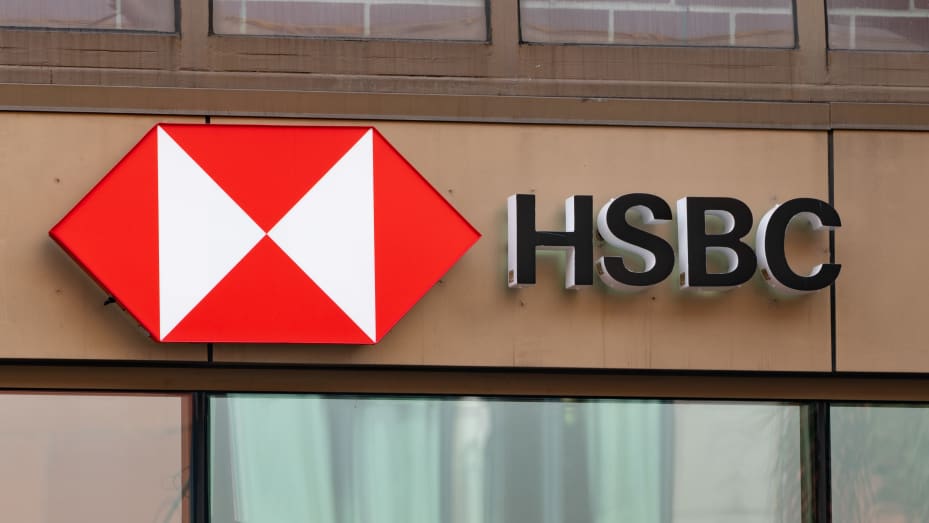HSBC Holdings (HSBA.L), opens new tab announced a $3 billion buyback and upgraded its income outlook on Wednesday, as it showed progress in its strategy to future-proof its business from global interest rate cuts that may hit returns from lending. The lender's shares rose 3% in London as investors cheered its stable first-half profit growth, gains in wealth management revenue and narrowing losses in Chinese real estate.
Europe's largest bank also set out a new goal for its return on average tangible equity - a key performance target - to be in the mid-teens in 2025, matching its estimate for 2024. HSBC, which is due to welcome new CEO Georges Elhedery in September following the retirement of Noel Quinn, said it had succeeded in reducing its sensitivity to rate cuts through an insurance strategy known as a structural hedge.
Whereas a 1% fall in global interest rates in 2022 would have wiped $7 billion off HSBC's annual revenue, Quinn told reporters that impact had dropped to a potential $2.7 billion hit. "It's notable for me that sensitivity to interest rates is reduced... It has done well as interest rates rose but expectation is that will reverse quickly," Iain Pyle, a portfolio manager at HSBC shareholder abrdn , told Reuters.
The new return target and earnings that beat market expectations should give investors confidence, Jefferies analyst Joe Dickerson added. "The valuation on a discount to book value for a targeted mid-teens return on tangible equity means it is well priced for a high quality bank with growth potential," said abrdn's Pyle.
The Asia-focused bank said it will pay an interim dividend of 10 cents a share, the second payment of 2024 following 31 cents announced last quarter.
The $3 billion share buyback followed a $5 billion buyback announced earlier this year. It means the bank will have paid shareholders $36 billion in dividends and $18 billion in buybacks over Quinn's tenure as CEO. For the first six months this year, HSBC said pretax profit fell 0.4% to $21.6 billion but was better than the $20.5 billion average of broker estimates compiled by HSBC.
Wealth revenue reached $4.3 billion for January-June, 12% more than the same period of 2023, driven by increased investment distribution and private banking income, as well as growth in asset management and life insurance.
The lender highlighted its commitment to its core London and Hong Kong markets, pointing out an 8% rise in international customer numbers to 2.7 million in January-June, with 345,000 new-to-bank account openings in Hong Kong. It also saw signs of relief from a slowing economy and worsening property sector in China, after booking a $3 billion writedown on the market last year.
Revenue at the lender's Global Banking and Markets investment banking unit grew 5%, benefiting from an upswing in its equities business, in line with trends at rival banks. Overall, in minor tweaks to guidance, HSBC estimated credit loss would fall into a 30 to 40 basis point range for the full year, from around 40 basis points a year prior.
It upgraded its net interest income view to around $43 billion from at least $41 billion. Operating expenses increased around 5% on year to $16.3 billion in the first half due to increased spending on technology, inflationary pressure and change in the timing of bonus payments.
The bank also named Jonathan Bingham as interim group chief financial officer, effective Sept. 2. Bingham, who joined the bank in 2020 after 20 years at accounting firm KPMG, will retain his existing duties as global financial controller, HSBC said, as it continues the process of identifying a permanent CFO.










